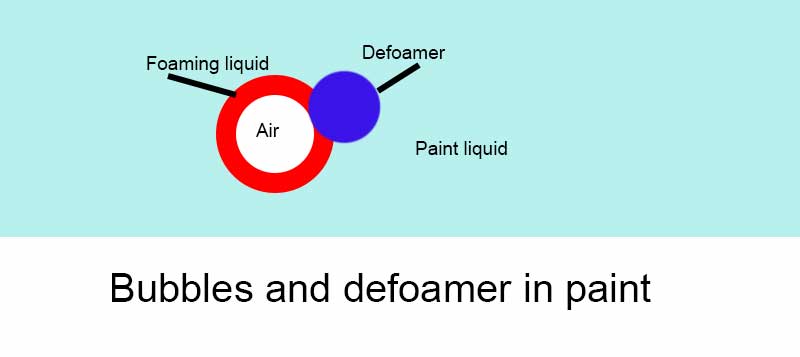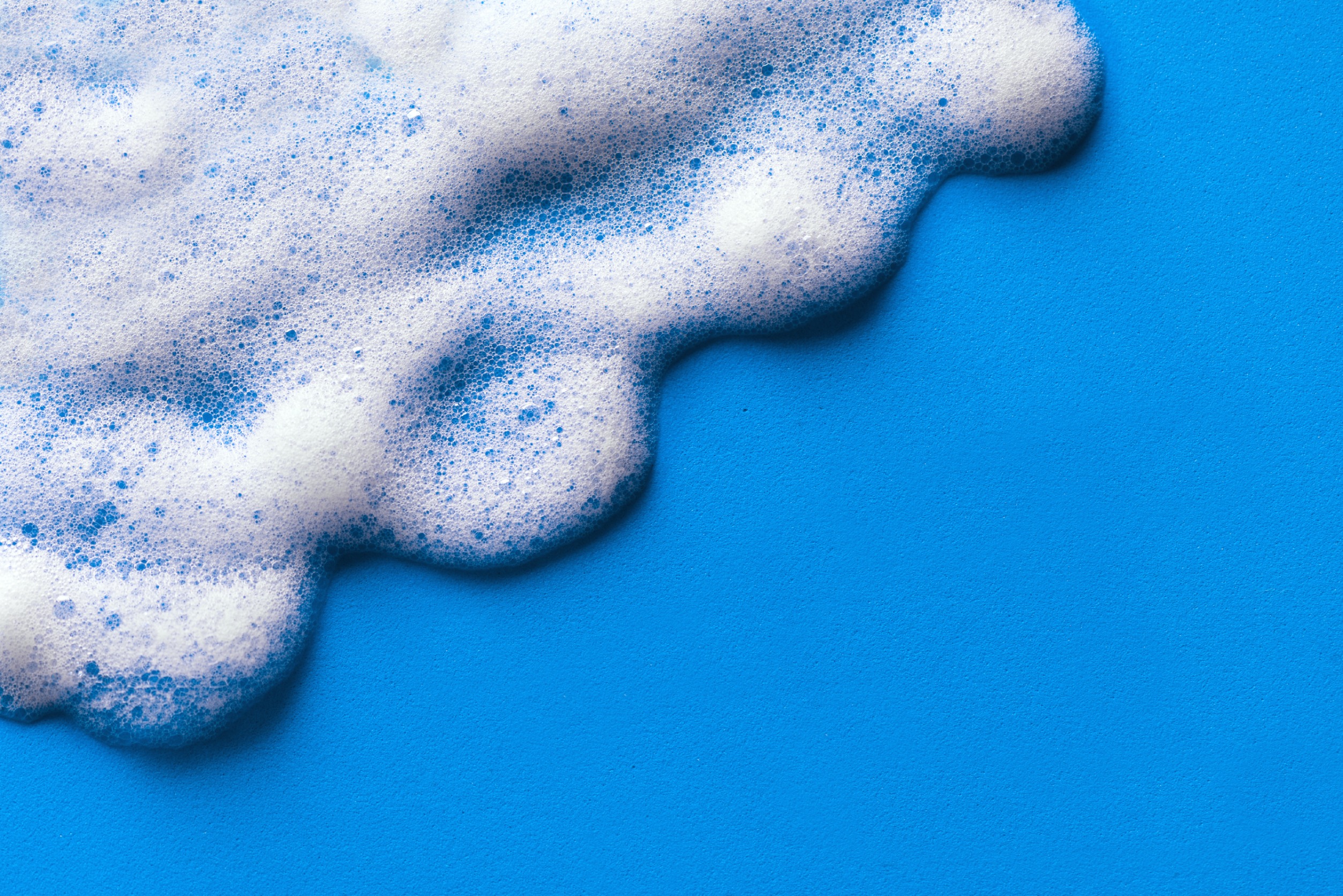The Function of Defoamers in Enhancing Product Quality and Performance
In different producing processes, the presence of foam can substantially prevent product top quality and functional effectiveness. Defoamers offer as necessary additives that mitigate this issue, making sure smoother manufacturing operations while boosting the aesthetic and practical attributes of the end products (defoamers). Their application spans a wide range of industries, from food and drink to pharmaceuticals, where consistency and integrity are critical. The option of the appropriate defoamer can be crucial to accomplishing optimal outcomes, increasing vital inquiries concerning solution compatibility and efficiency metrics that warrant additional expedition.
Understanding Defoamers
Comprehending the duty of defoamers is important for keeping item quality throughout various industries. Defoamers are chemical ingredients created to minimize and avoid the development of foam in liquid systems, which can detrimentally affect processes such as mixing, loading, and surface area tension. Lathering can bring about ineffectiveness, item problems, and compromised aesthetic appeal, making defoamers a vital part in producing operations.
In commercial applications, defoamers aid to boost product uniformity and security. In the paint and finishings sector, foam can interfere with the application procedure and the last surface. In a similar way, in food and beverage manufacturing, extreme foam can prevent bottling and packaging performance (defoamers). The effective use defoamers not just makes certain smoother manufacturing processes yet additionally adds to premium product performance.
In addition, the option and formula of a defoamer must straighten with details application demands, such as compatibility with various other active ingredients, performance under varying temperature level and pH conditions, and potential regulative restraints. Inevitably, comprehending defoamers' features and their value in various formulas is important for optimizing production and making sure the highest possible top quality end products.
Kinds of Defoamers
Defoamers can be categorized right into a number of kinds based on their make-up and system of activity. The key kinds include silicone-based, non-silicone organic, and inorganic defoamers.
Silicone-based defoamers are among the most reliable, primarily due to their capability to spread out quickly on the liquid surface area and disrupt foam development. Their one-of-a-kind chemical structure allows for remarkable security, making them ideal for high-temperature applications and environments with varying pH levels.
Non-silicone natural defoamers, commonly composed of all-natural oils or fats, are valued for their biodegradability and lower poisoning. These are commonly utilized in food and drink applications where safety and ecological influence are vital.
Not natural defoamers, which consist of materials like talc or calcium carbonate, act by increasing the thickness of the liquid, consequently reducing foam security. They are commonly utilized in commercial procedures where compatibility with other materials is not an issue.
Each kind of defoamer has distinct benefits and limitations, enabling for customized remedies relying on the details frothing issues experienced in different applications. Recognizing these differences is critical for maximizing efficiency and accomplishing preferred item quality.
Applications Throughout Industries
Many markets utilize defoamers to enhance item quality and operational efficiency. In the food and beverage market, defoamers are crucial in procedures such as developing and dairy products manufacturing to avoid foam formation, which can result in ineffectiveness and product incongruity. By regulating foam, makers can ensure far better return and a more uniform product.
In the pharmaceutical market, defoamers play an essential duty in the formula of fluid drugs, where excessive foam can restrain mixing and precise dosing. Their usage helps keep the integrity of the solutions and helps with smoother production procedures.
The paint and finishes industry additionally depends on defoamers to improve the performance of items during application. By decreasing foam, these additives make sure a smoother coating and boost the aesthetic qualities of the last item.

Benefits of Using Defoamers
While the application of defoamers differs across markets, their advantages consistently boost item top quality and procedure efficiency. One significant advantage is the reduction of foam development throughout producing procedures, which can or else lead to production hold-ups and inconsistencies in item quality. By decreasing foam, defoamers enable a smoother flow of materials, assisting in extra efficient operations and decreasing the probability of tools breakdowns.
In addition, the use of defoamers can enhance the look and texture of end products. In sectors such as coverings, paints, and food processing, extreme foam can compromise the aesthetic looks and overall top quality, while the proper defoamer application guarantees a consistent finish and desirable features. Defoamers can add to cost savings by lowering waste throughout production and enhancing the use of raw materials.

Picking the Right Defoamer
Selecting the appropriate defoamer is vital for maximizing manufacturing procedures and ensuring this website item quality. The choice of defoamer affects not just the effectiveness of foam control but additionally the overall performance qualities of the end product. Elements to take into consideration consist of the kind of application, the chemistry of the formulation, and the environmental conditions under which the find product will certainly be made use of.
Various markets may call for details defoamer kinds, such as silicone-based, natural, or polymeric defoamers. Comprehending the compatibility of the defoamer with the main ingredients is vital to avoid damaging responses that could compromise product stability. In addition, the defoamer's performance in various temperatures and pH degrees have to be evaluated to ensure constant efficiency.
Testing the defoamer in small-scale applications can give beneficial understandings into its performance and viability. Factor to consider of regulative compliance, specifically in food, pharmaceuticals, and cosmetics, is extremely important in selecting a defoamer. Eventually, a complete assessment of these factors will bring about the option of a defoamer that not just controls foam properly however likewise enhances the top quality and efficiency of the end product.
Final Thought

To conclude, defoamers are necessary ingredients that considerably boost item high quality and efficiency throughout numerous markets. By properly decreasing foam development, these representatives not only enhance operational effectiveness however likewise add to the aesthetic and practical honesty of products. The strategic selection and application of defoamers bring about set you back savings, maximized source use, and boosted consumer complete satisfaction. In general, the value of defoamers in commercial processes can not be overstated, as they play a vital duty in achieving premium and regular outcomes.
Lathering can lead to ineffectiveness, item problems, and jeopardized visual charm, making defoamers a critical element in producing procedures.
